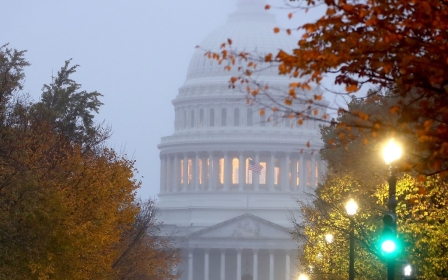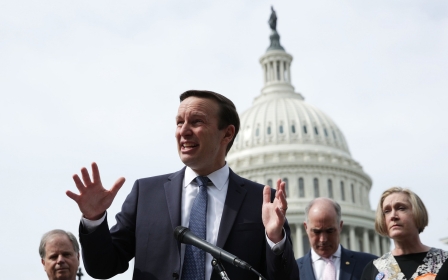Pompeo will not brief House committee on Iran, chairman says

US Secretary of State Mike Pompeo will not appear before a House Committee hearing on Iran, the committee's chairman said in a statement.
Representative Eliot Engel said on Monday that he was "disappointed and frustrated" at Pompeo's refusal to brief the committee on recent US-Iran tensions.
"Each passing day raises new questions about the strike that killed General Soleimani. Was there really an imminent threat? Was it part of a larger operation? What was the legal justification? What is the path forward?," Engel wrote in a statement.
'Why is the Secretary of State afraid to justify the President's actions in Iran?'
- Representative Dina Titus
"With the wildly muddled explanations coming from the administration, the Secretary should welcome the opportunity to make the case and answer questions before the American people. The committee expects to hear from him soon," Engel said.
"Why is the Secretary of State afraid to justify the President's actions in Iran? Why won't they provide evidence of an 'imminent" attack?'," Representative Dina Titus, a House foreign affairs committee member, said on Twitter.
New MEE newsletter: Jerusalem Dispatch
Sign up to get the latest insights and analysis on Israel-Palestine, alongside Turkey Unpacked and other MEE newsletters
The State Department did not respond to Middle East Eye's request for comment on why Pompeo decided not to testify.
US President Donald Trump unilaterally ordered the killing of Iran's top General Qassem Soleimani last week. Congress was not briefed or consulted before the major operation, leading the House on Friday to pass a measure seeking to limit Trump's military actions against Iran.
Several days after Soleimani's killing, Iran launched more than a dozen missiles at two Iraqi military bases housing US troops. No casualties were reported in the reprisal attacks.
Was an attack imminent?
The Trump administration has cited the threat of "imminent attacks" against US assets as the main reason behind the order to kill Soleimani.
What those imminent attacks might have been has not been made clear.
On Wednesday, intelligence officials from the administration briefed Congress behind closed doors, but Democrats emerged from the hearing sceptical about the White House's argument that a threat was looming.
On Friday, Trump said Soleimani was planning attacks against four US embassies; however, on Sunday, Defense Secretary Mark Esper said he "didn't see" that specific intelligence.
Pompeo has also been a central player in the confusion surrounding what exactly prompted the killing of Soleimani.
The secretary of state said during a Fox News interview on Thursday that "we don't know precisely" when and where such attacks were set to take place, but the next day the secretary told reporters that the administration knew for certain such plans were imminent and "included attacks on US embassies".
Despite the heated debate over the state of US intelligence before the attack, Trump tweeted on Monday that "it doesn’t really matter" if Soleimani was an imminent threat to the US.
"The Fake News Media and their Democrat Partners are working hard to determine whether or not the future attack by terrorist Soleimani was 'imminent' or not, & was my team in agreement. The answer to both is a strong YES., but it doesn't really matter because of his horrible past!," Trump tweeted.
The House Foreign Affairs Committee shot back on Twitter, retweeting Trump's post and insisting that the question of an imminent threat "does really matter".
"It does really matter, because we have things such as 'laws' and 'the constitution' that govern how and where and when the military can be used," the committee said on Twitter.
Middle East Eye delivers independent and unrivalled coverage and analysis of the Middle East, North Africa and beyond. To learn more about republishing this content and the associated fees, please fill out this form. More about MEE can be found here.





